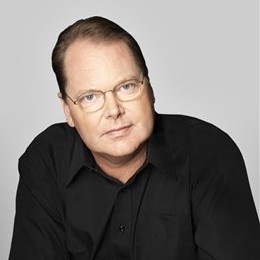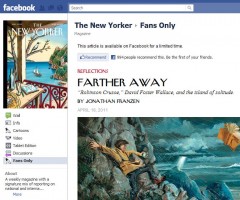Category Archives: Social Media
Using Facebook as a Reporter
This post was originally published as a note on Luke O’Neill’s Facebook page, May 25, 2011. It is used with permission and has been edited for publication on ModernJournalist.com.
Since the beginning of the year, I’ve found a number of stories through Facebook. In fact, I have been able to source more contacts through Facebook than I have through Twitter.
I write for the Irish Echo, a small publication in Sydney, Australia. I used Facebook to find sources during the Queensland floods, Cyclone Yasi, the Christchurch earthquake and the Japanese tsunami, earthquake and ensuing Fukushima nuclear scare.
Here are some example of stories sourced using Facebook search:
- Irish in Tokyo recall moment quake hit
- Tipperary natives helping Gatton flood clean-up
- Wexford woman recalls night Yasi hit Tully
We need Irish voices in our stories. The catastrophic events I mention above were not fitting for my newspaper until we were able to find that Irish people were involved. So there is a sort of strange, self-imposed nationality-based restriction to the stories I write. This is where Facebook came in.
Continue reading
Traditional Reporting Techniques Still Key to Social Media News Gathering

Remember your first breaking news story? You ran to a phone booth, pulled a coin from your pocket, and “dialed” your editor. Don’t remember that? Well Mark Colvin does.
As a 35-year veteran journalist with the Australian Broadcasting Corporation, Colvin has seen technology change dramatically. While the typewriters, carbon copies, switchboards and telex machines have faded away, he sees social media as the most significant change of his career.
“In the last year or so, social media has brought an even more revolutionary development. It’s one which is transforming our approach, particularly to conflict reporting,” said Colvin in an essay for The Punch.
He looks at how Jess Hill (ABC) and Andy Carvin (NPR) used Twitter to find sources in North Africa and sees old-school reporting techniques at the core: cultivating sources and fact checking.
A Lesson From the New Yorker’s ‘Like-Gate’
Organizations are growing more adept in their use of the “like-gate” feature on Facebook. Content can be posted that is only available to those who “like” the page. Adding content “behind the wall” gives the audience an incentive to like your page, which in turn grows your social media audience. But there’s more to it than that.
The latest organization to use the feature is New Yorker Magazine, which used the “like-gate” to offer a long-form article by Jonathan Franzen.
Other organizations can learn how not to use this feature by studying the New Yorker’s example. Unless a visitor to the page found the piece through the New Yorker’s post, they’re unlikely to know that exclusive content lives behind the wall. And they’re unlikely to have seen New Yorker’s Facebook post, since they don’t yet “like” the page. The tab that leads to the content is labeled “Fans Only.” There’s no mention of exclusive content, no mention of an article and nothing about Franzen, until you click on that tiny little tab.
If you’re going to offer exclusive content, make sure anyone who sees the page knows it’s there, and looking for the content isn’t a scavenger hunt. Otherwise, what’s the point?
‘Never’ Use Twitter as a News Source? Let’s Talk
This post was originally published on Wendy Fry’s Posterous blog, April 1, 2011.
I was in a collision this morning. A traffic accident of sorts between new media and old.
Somewhere between a jog on the beach, yet another redevelopment debate, FPPC complaints and hotel construction to cover, my two-years out of journalism school and fiercely protected new media mindset crashed full force into Stewart Jacoby, the director of radio programming for South Texas Public Broadcasting System, Inc., a broadcast journalist for the past 40 years.
It all began on Twitter, of course, with a tweet by Grant Barrett of voiceofsandiego.org:
“WHAT?!” I cried. Jacoby and I needed to have a conversation pronto so I could enlighten him on the ways of our brave new world.




